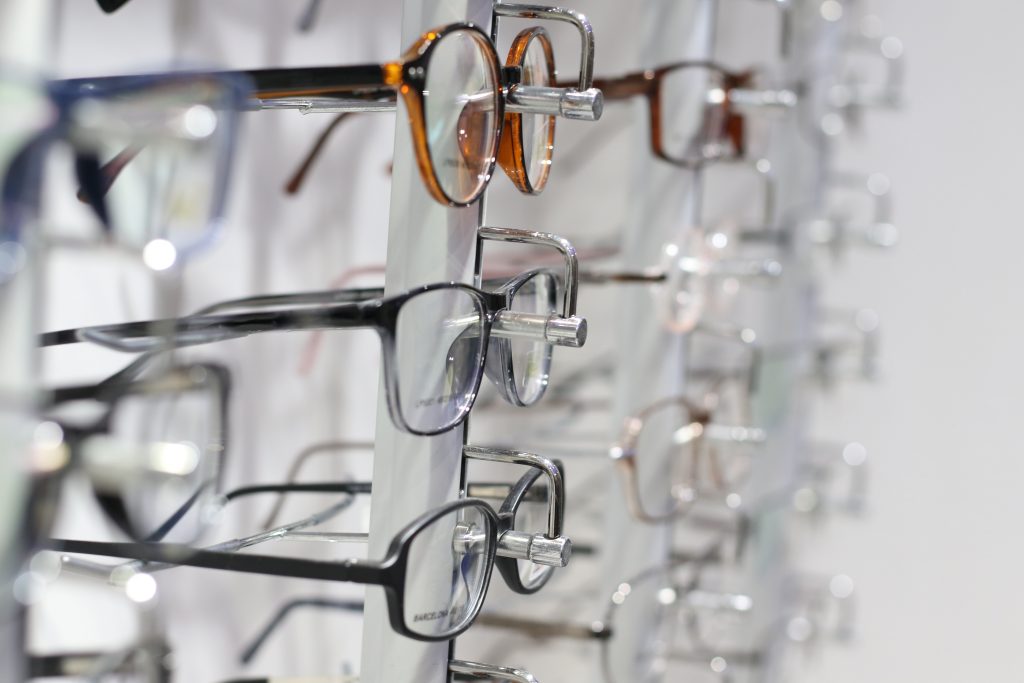Hope in Sight
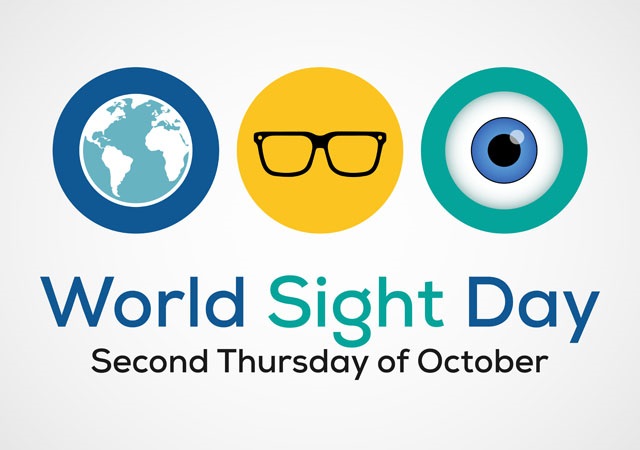
October 8th is World Sight Day. We dedicate this day to raising awareness about blindness and vision impairment. The goal is to encourage people to get regular eye exams and to encourage governments to include vision coverage in universal health plans. The day was created by The International Agency for the Prevention of Blindness. The theme for 2020 is “Hope in Sight”.
Last year there were over 200 events across the world. Organizations in 48 countries hosted a range of activities. The World Health Organization released a report called the “World Report On Vision”, which compiled health data from around the globe to give updated figures on blindness and vision loss. These events laid a strong foundation for the 2020 World Sight Day to build on.
According to the WHO, an aging world population and an increase in myopia will cause an increase in blindness and vision impairment. Many of these conditions can be treated if they are caught before vision loss occurs. However, vision loss is usually not reversible once it has begun. This is why it is so important to encourage your loved ones and friends to get an eye exam. Contact Grosinger, Spigelman & Grey in Bloomfield Hills, Michigan to schedule an appointment today.
Why Is Vision Care Important?
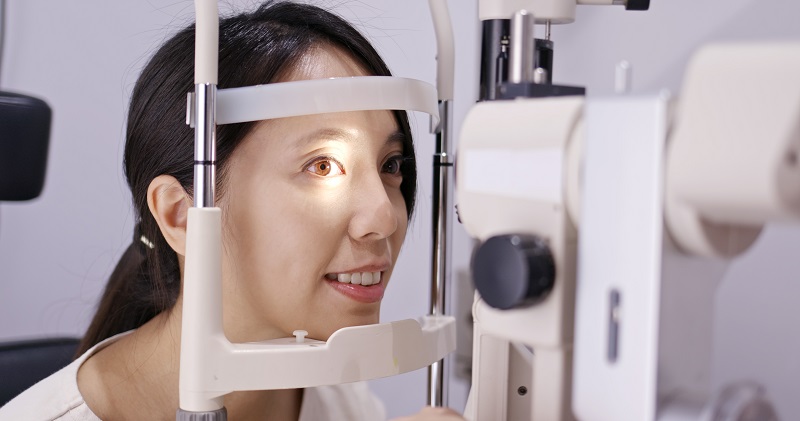
We often take our ability to see for granted. In reality, this sense has a profound impact on the way we live our lives. Good vision care habits are essential to preserving and protecting sight. Why should you be proactive when it comes to eye health?
- Vision Can Impact Work Performance
Most jobs require good eyesight. That means a worker with poor vision is much more likely to struggle in their job duties. A part of being proactive is making sure you get regular exams and comprehensive screenings.
- Myopia Can Worsen
Myopia is on the rise. Also known as nearsightedness, this condition may seem like no big deal. However, the younger a person is when they develop it, the worse the progression of the condition can be. It also increases the risk of serious conditions as you age, like retinal detachment, glaucoma, and cataracts.
- Your Eyes Are Connected to Your Overall Health
Your eyes serve as a window to your overall health. Our ophthalmologists can sometimes identify diseases like cancer, diabetes, Sickle Cell disease, and more just by examining your eyes. Regular visits will help ensure an early diagnosis that may improve your long-term outlook and treatment options.
- Sight Can Make Everyday Tasks Easier or More Challenging
Most people rely on their eyesight to complete everyday tasks. This sense is one of the most important for activities like driving and reading. There are eye diseases that can be managed or cured if you see an ophthalmologist in time. Depending on the injury or disease, you can retain your sight or slow down its progression.
Contact Grosinger, Spigelman & Grey’s Bloomfield Hills office today to request an appointment to take steps to care of your vision.
20/20 in 2020

A great way to start off the new year in a new decade is to make an appointment for a comprehensive eye exam. Eye exams are critical to catch many eye diseases as well as some other diseases that have gone undiagnosed, such as diabetes. The sooner you are evaluated and diagnosed, the quicker you can be treated to reduce your chance of losing your sight. Don’t put it off. Schedule an appointment with an ophthalmologist at Grosinger, Spigelman & Grey today!
Labor Day Weekend Is Here!
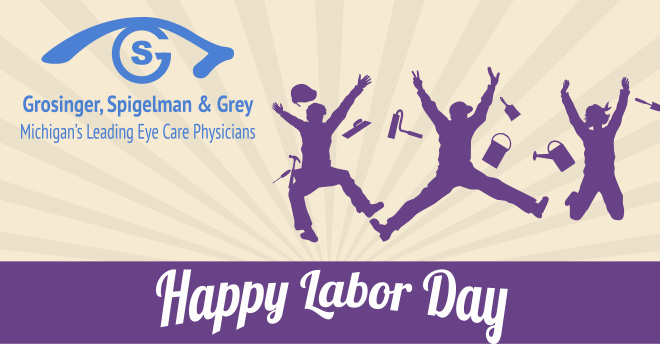
People and their work make the difference. We value our employees and the hard work they do everyday. Enjoy the holiday weekend!
Why Can I See Better When I Squint My Eyes?

Most people think that you would see better when your eyes are open wider. This sounds logical. Your eye is getting a broader view of the world, and more light is accessible to produce a clearer image. However, in practice, many people find that the opposite is true.
When we squint, we can often see things a little clearer. That’s why we squint to see the alarm clock when we wake up at 2 am. What is it about squinting that helps us see better than when our eyes are wide open?
What Does Squinting Do to Your Eye?
Even though it doesn’t feel much different, squinting does three things to our eyes that lead to slightly clearer vision.
- Our Eye Lens Changes Shape – The lens of the eye is flexible and changes shape when we squint.
- The Eye Lens Adjusts – Small adjustments in the lens allow us to focus better, much like a camera.
- Less Light Enters the Eye – Less light enters, reducing the impact on the retina and allowing the object we view to look sharper.
Why Do I Have to Squint So Much?
Occasional squinting is normal, even for people with healthy eyes and clear vision. If you are over the age of 40 and have never had to wear prescription glasses, then this is likely normal.
If you find yourself squinting a lot, then you may need to talk to an eye doctor. This could be a sign of eye strain or fatigue. You may need glasses if you also experience:
- Headaches
- Double vision
- Difficulty reading
Other symptoms, like feeling pressure in the eye, seeing halos, and decreased night vision could indicate a developing problem. Contact Grosinger, Spigelman & Grey to schedule an ophthalmologist appointment for a comprehensive eye exam to find out if you need glasses and assure that your eyes are healthy.
Do I Have Cataracts?
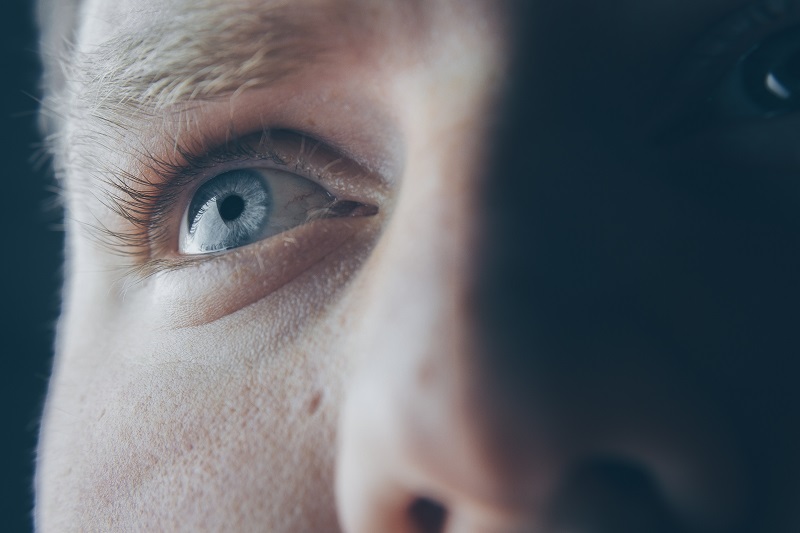
Cataracts are a very common eye condition that affects people all over the world. It is more common as we age, but can also appear as the result of an injury. At first, the condition may not have a significant impact on your ability to see. The problem will worsen over time until you begin to have serious issues with your sight.
The best thing to do is to catch the condition early so that a doctor can monitor progress and determine the best time for cataract surgery. What signs should you look for when you notice changes in your vision?
- Glare and Light Sensitivity – Many patients will start to notice increased sensitivity to bright light. They also see haloes or glare around light sources. This occurs because the cataract scatters light as it enters the eye.
- Loss of Color Vision – Cataracts can also reduce a person’s ability to see colors. The clouding effect can wash out hues, causing the world to look drab and muted. Red, yellow, and green shades will begin to appear similar.
- Other Common Symptoms – If you experience double vision, trouble seeing at night, and poor central vision, then you may have a developing cataract.
What Do I Do if I Notice the Signs of Cataracts?
If you notice any of the signs listed above, it’s time to seek professional advice. Only a doctor can examine your eyes and provide a diagnosis and treatment option. Contact Grosinger, Spigelman & Grey Michigan’s Leading Eye Care Physicians located in Bloomfield Hills, Michigan to make an appointment.
5 Reasons to See an Eye Doctor After Age 40 Even If You Do Not Have Symptoms

As we age, the recommended frequency for eye doctor visits changes. Healthy adults ages 40 to 64 are advised to see their eye doctor at minimum once every two to four years. After age 65, that recommendation changes to once every one to two years. That applies whether you are experiencing symptoms or not. If you do have an eye condition or wear glasses or contacts, it is suggested that you visit your ophthalmologist more frequently. Your ophthalmologist will provide you proper appointment frequency depending on your individual case and care needed. Why should you start or continue seeing your eye doctor after age 40?
- Many Eye Conditions Are Silent
Many eye-related conditions are silent. That means you will notice no symptoms until things have progressed. Once you start experiencing blurry vision or other effects, the problem may be much worse than it was when it started.
- Prevention Is the Most Effective Treatment
The most effective way to treat conditions is to avoid them altogether. Your ophthalmologist can monitor your ongoing health and make recommendations to help you keep your vision clear. For example, you may be advised to begin taking a vitamin supplement to help prevent age-related macular degeneration.
- Eyes Will Deteriorate As We Age
There is no way to avoid the fact that our eyes deteriorate as we grow older. Even if you live a model lifestyle with exercise and a good diet, your eyes will age. Your doctor can help manage these changes by adjusting your prescription and monitoring for other conditions.
- Establish a Record of Health
Seeing your eye doctor regularly will establish a record of health. This can be beneficial in case you develop a condition later. It can also help you observe the way lifestyle changes are affecting your vision.
- An Exam Could Save Your Sight
One comprehensive dilated eye exam could mean the difference between blindness and keeping your sight. An underlying issue could be present, but not yet obvious. Or, in some cases, you may attribute minor changes to other less concerning causes.
Regular ophthalmologist visits provide you more opportunities to catch diseases before they have a chance to rob you of your vision. Contact Grosinger, Spigelman & Grey Michigan’s Leading Eye Care Physicians located in Southeast Michigan to schedule your next appointment.
How Has LASIK Surgery Improved Over the Last Decade?
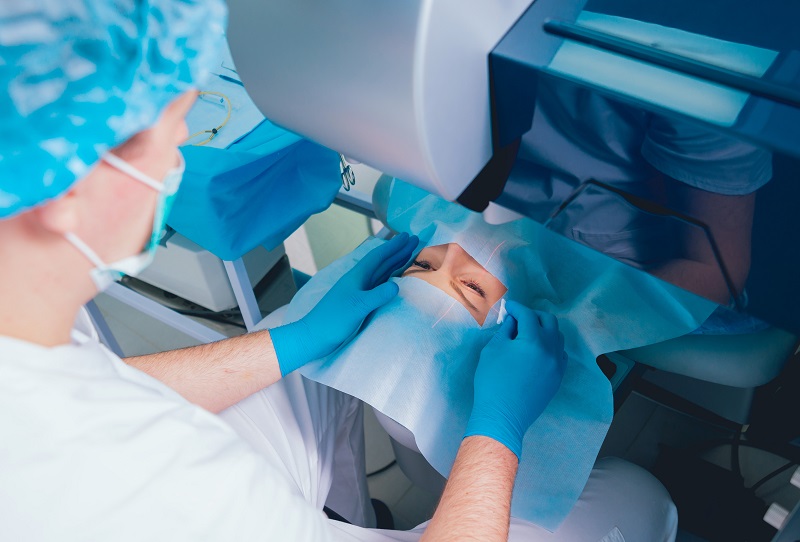
The roots of LASIK surgery date back to the 1950s when Spanish ophthalmologist Jose Barraquer developed techniques to cut and shape the cornea. Three decades later, Rangaswamy Srinivasan found that an ultraviolet excimer laser can be used to precisely etch living tissue with no thermal damage. The Food and Drug Administration began excimer laser trails in 1989 and approved the manufacture and distribution of the lasers in 1998.
LASIK has come a long way since its early beginnings over 60 years ago. Even though the technology was FDA-approved in the 90s, it continues to evolve to produce better results.
LASIK Goes Bladeless in 2001
In 2001, a bladeless LASIK procedure was approved by the FDA. This process, called IntraLASE, used a femtosecond laser rather than a microkeratome blade. The original procedure was relatively safe, but IntraLASE made it even more so. It reduced the potential for human error and related complications.
Precise Correction with Wavefront or CustomVue
Wavefront or CustomVue technology received FDA approval in 2002. This advancement added detailed corneal mapping that guides the laser. Better tracking meant personalized treatment and precise correction even when working with large pupils, thin corneas, or higher prescriptions.
Laser Blended Vision Gets Rid of Reading Glasses
Most people find that they need a pair of reading glasses as they age. This is completely normal, but it has become a condition that we don’t have to live with. Laser Blended Vision is a technique that adjusts by increasing the depth of field of each eye.
Find out if LASIK can correct your eyesight by contacting Grosinger, Spigelman & Grey, Michigan’s Leading Eye Care Physicians. Our Southeast Michigan ophthalmologists are available to examine your eyes and make the best recommendation for you.
#GrosingerSpigelmanGrey #EyeMichigan #PerfectVision #ImproveYourVision #MichigansLeadingEyeCarePhysicians #LASIK
Fireworks Eye Safety Month
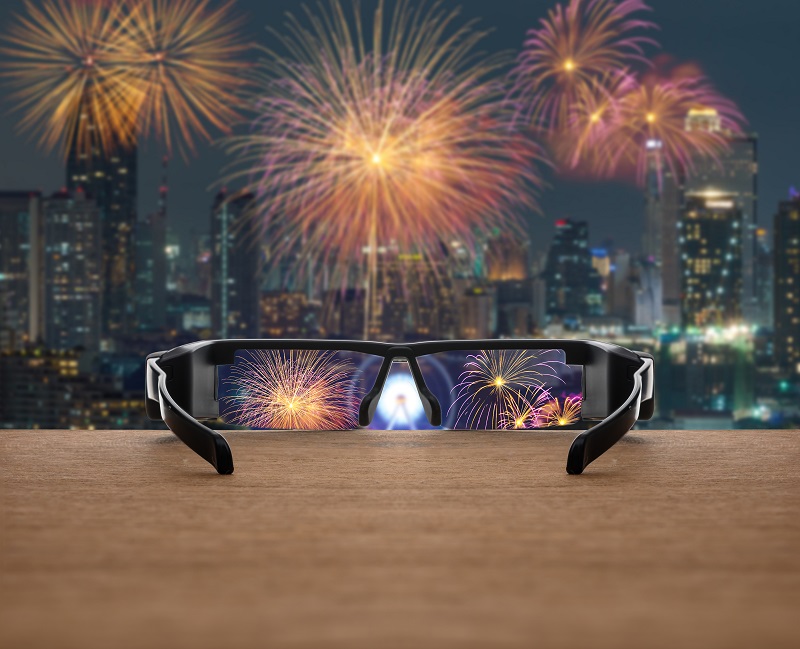
Summertime brings many families outdoors. It’s also the season of fireworks. Around 68% of the total fireworks-related injuries reported in 2016 happened around the 4th of July. Men accounted for 61% of fireworks injury patients. Children under the age of 15 made up 31% of injuries. How many of these incidents were preventable? The following safety measures can help you enjoy a legal, accident-free Independence Day celebration.
- Check the Laws in Your Area
Rules will vary from one community to the next. Make sure you know what you are allowed to use before planning your party. Keep the festivities legal so that you can avoid a confrontation with law enforcement, which can be made much worse if fireworks injuries are involved.
- Read the Instructions
Read through all the instructions on each fireworks product you buy. This will tell you how to safely setup and light fuses as well as what the product does, signs of damage, and how much space is required. Make sure you wear proper eyewear to protect your eyes and avoid injuries.
- Have a Designated Areas for Spectators
Have a designated place for spectators that’s clearly marked. This should be positioned beyond the reach of the largest fireworks you plan to set off. Advise parents to make sure their children remain within the designated safe zone.
- Do Not Re-Light Fireworks
If a firework fails, do not relight it. No one should approach it for at least 20 minutes. If it has not gone off after that time, carefully place it in a bucket of water before discarding.
- Douse Spent Fireworks with Water
All fireworks should be given adequate time to finish burning before handling. Place the burnt remains in water to ensure that no flame or heat remains. Once soaked, the firework can be thrown away.
Start your summer off right by scheduling your annual comprehensive eye exam. An ophthalmologist can help you keep your eyes in great condition so you can see all the colors of this year’s fireworks displays! Contact Grosinger, Spigelman & Grey Michigan’s Leading Eye Care Physicians for an appointment today.
#GrosingerSpiegelmanGrey #MichigansLeadingEyeCarePhysicians #EyeSafety #FireworksEyeSafetyMonth #EyeInjuryPrevention

